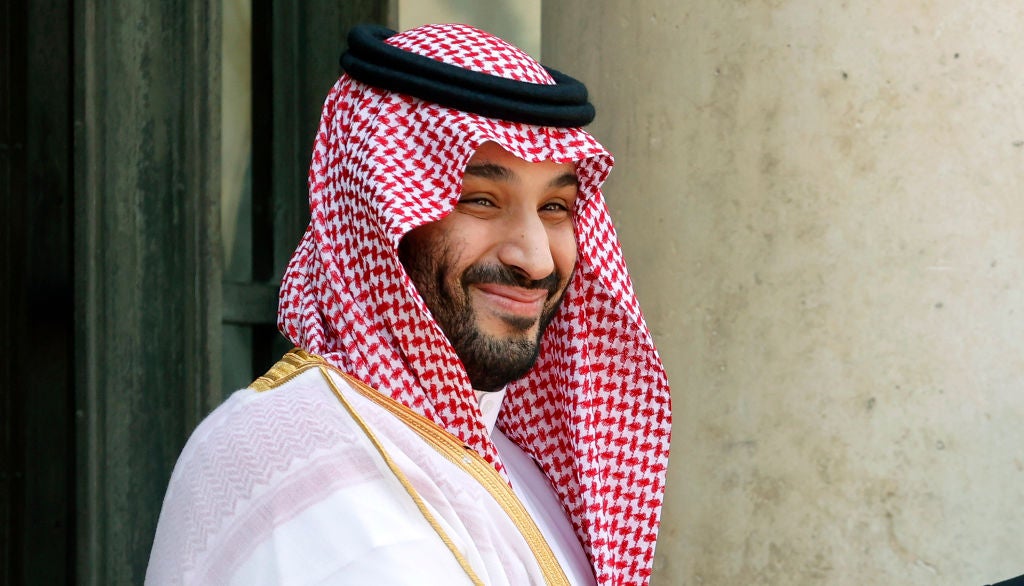
Saudi Arabia is pressing Washington for access to more advanced US weaponry and support for its nuclear program amid US-brokered negotiations between Riyadh and Israel.
Tourism Minister Haim Katz on Tuesday (26 September) led the first high-ranking Israeli delegation to Saudi Arabia, hours after a Saudi delegation arrived in the West Bank for the first time since Israel captured the territory from Jordan in 1967, the BBC reported.
Saudi Arabia and Israel have never held normalised relations, with hostilities dating back to the Arab-Israeli war.
A deal between the two powerhouses would mark a significant shift in regional politics – and a consolidation of the US’ diplomatic influence in the Middle East through a rapprochement of its two allies.
Normalised nuclearisation?
For the US to broker such a diplomatic victory, Riyadh expects streamlined access to more advanced military equipment, an array of US defence upgrades and security commitments.
When the United Arab Emirates (UAE) struck a normalisation accord with Israel in 2020, the US made MQ-9 Reaper drones, the F-35 joint strike fighter jet and various precision-guided missiles available to purchase for $23bn. The Biden administration reneged on the Trump-overseen deal after it reportedly discovered the UAE’s construction of a secret Chinese military facility in Abu Dhabi.
Saudi Arabia will expect nothing short of what the UAE was pledged. The kingdom’s push to join the Global Air Combat Programme (GCAP), established by Japan, Italy and the UK, illustrates another recent attempt to strengthen defence ties with militarily active US allies.
Ties with Israel follow the same trend. GlobalData research shows that Jerusalem has been the most active Middle Eastern dealmaker in the defence industry since 2019, with deals surpassing $5bn in value.
More crucial to the Israel-Saudi-US deal is the prospect of other Middle Eastern nations developing nuclear programs.
Both Saudi Arabia and Israel are keeping a close eye on Iran’s moves towards nuclearisation, which has been an ongoing and crucial facet to US-Iran diplomatic negotiations for decades.
In a rare TV interview with Fox News, Saudi Crown Prince Mohamed bin Salman warned that if Iran builds a nuclear weapon, “we have to get one.”
The Palestinian question
In the same interview, bin Salman called for Israeli concessions to Palestine as part of the agreement.
“For us, the Palestinian issue is very important. We need to solve that part,” the Crown Prince said. “And we have a good negotiations strategy until now. We hope that we reach a place that will ease the life of the Palestinians and get Israel as a player in the Middle East.”
The Saudi delegation was headed by Nayef al-Sudairi, already Riyadh’s ambassador to Jordan. Al-Sudairi became Saudi’s first official envoy to Palestine ahead of the two-day trip, which the Palestinian foreign ministry described as "a historic milestone" in relations with Riyadh.
The West Bank and Gaza Strip are two Palestinian territories occupied by Israel since 1967. Human rights organisation Amnesty International say the occupation is “apartheid” and has resulted in the forcible displacement of the five million Palestinians living in the area, which encompasses East Jerusalem.
Our signals coverage is powered by GlobalData’s Thematic Engine, which tags millions of data items across six alternative datasets — patents, jobs, deals, company filings, social media mentions and news — to themes, sectors and companies. These signals enhance our predictive capabilities, helping us to identify the most disruptive threats across each of the sectors we cover and the companies best placed to succeed.


